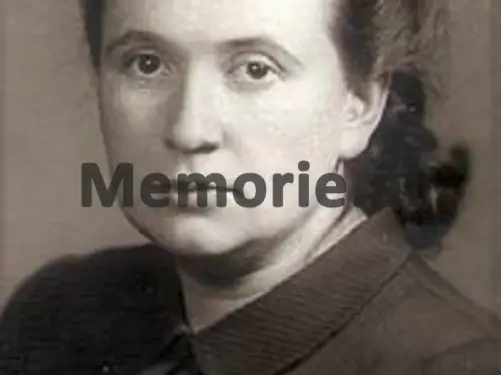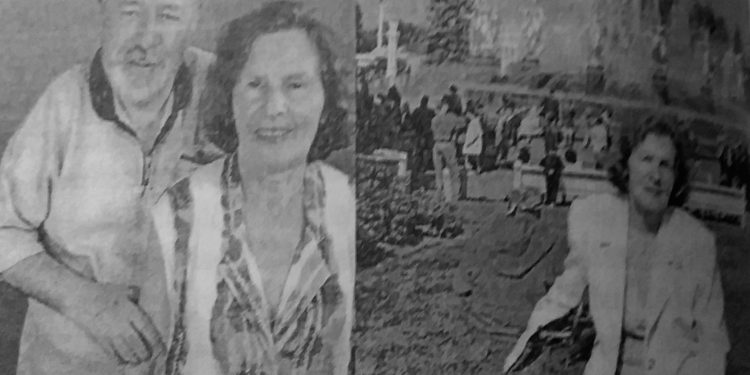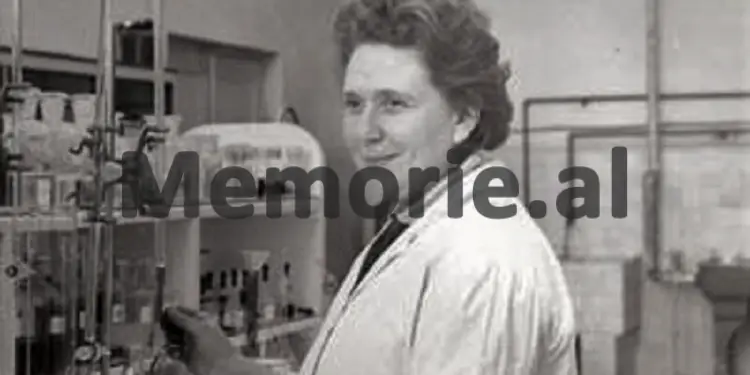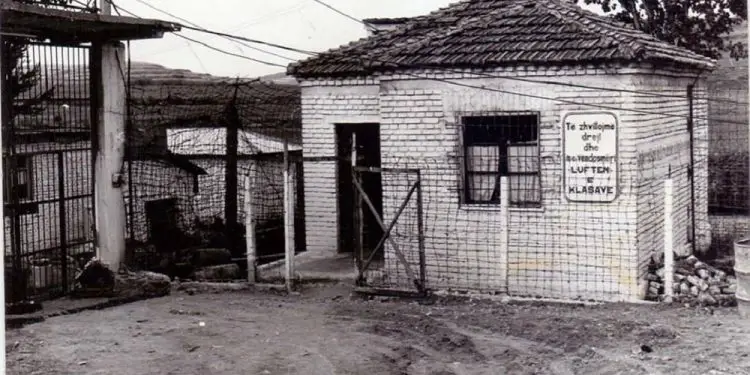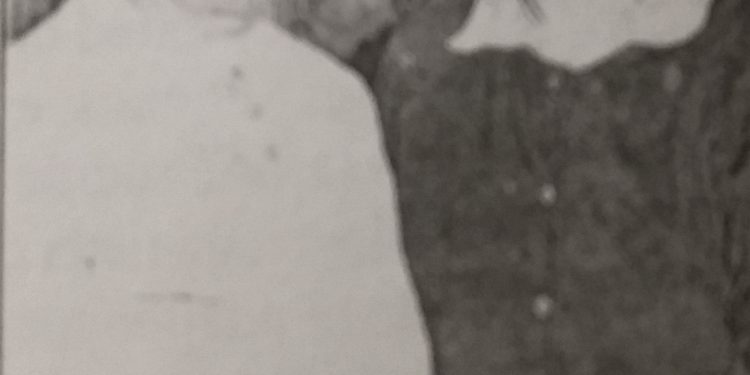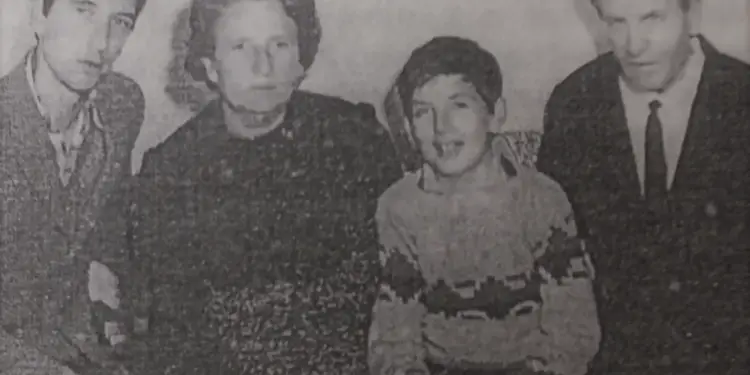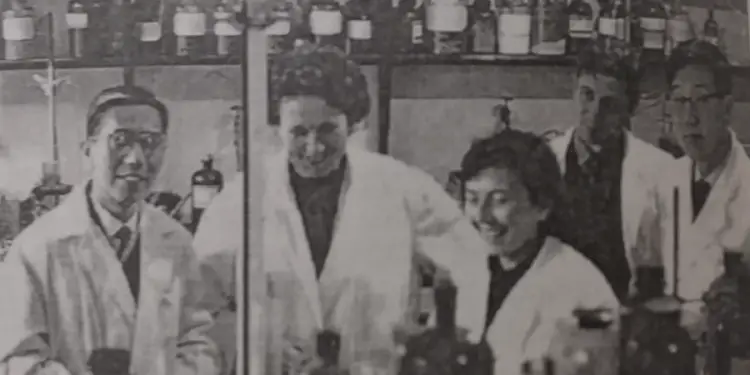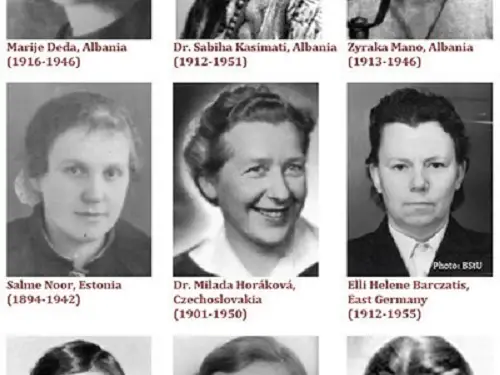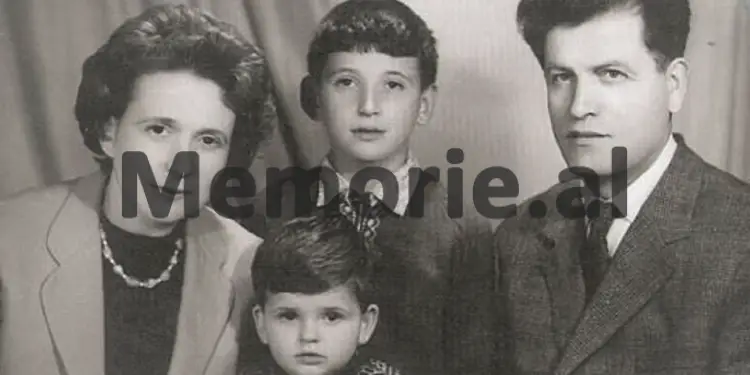By Taisa Batkina (Pine)
Part seventeen
Memorie.al/ publishes the unknown story of the Russian Taisa Batkina (Pine), originally from Tula, Russia, the third child of a very poor rural family, who was left an orphan at a very young age, after her father lost his life while working in one of the coal galleries on the outskirts of Tula, where he worked as a miner (shortly after escaping arrest, accused of “supporting the enemies of the people”) and she grew up with difficulty great economic, as their city continued to be under the bombardment of German forces, which had reached as far as near Kursk. Taisa graduated from the Faculty of Chemistry, near the ‘Lomonosov’ University of Moscow, where she met and married the Albanian student, Gaqo Pisha, originally from the city of Korça, who at that time was studying at the Faculty of Philosophy in Moscow and both together in 1957, they returned to Albania, together with their newborn son, Sasha, and began life in the city of Tirana, where Taisa was appointed as a professor of Chemistry at the State University of Tirana, while Gaqo, in the chair of Marxism- where they worked until 1976, when the State Security arrested Taisa Batkina on fabricated charges, accusing her of being a “Soviet KGB agent” and sentencing her to 16 years in political prison, which she suffered. in the “Women’s Prison” in the city “Stalin”, from where she was released in 1986, while her husband, Gaqo Pisha, had died in 1983, from a serious illness. The tragic story of Taisa Batkina (Pine), in the inhuman camps and prisons of Enver Hoxha’s communist regime, where she spent a decade of her life, along with many compatriots from the former Soviet Union, or other Eastern European countries, comes through her memories, published in a book entitled “We hoped and survived”, memories which, her son, Aleksandër Pisha, kindly offered her for publication, in Memorie.al
We hoped and survived
I dedicate it to the bright memory of my husband, GAQO PISHA
This is a book of memories. In it I want to tell about my life and that of my friends, Soviet women, who tried prison for several years just because they got the courage and got married and linked their fate with that of Albanian students. The prison was part of the great GULAG in the small Balkan country, Albania, where for many years the bloody communist regime of Enver Hoxha ruled, who was a loyal student of Stalin and a follower of his cause.
Through this book I would like everyone to learn about the inhuman trials we experienced and the horrible years we spent in Albanian prisons, just because… we fell in love! And let no one ever forget what totalitarianism, despotism is and what the consequences of this system are.
Continued from the previous issue
ZOJA
Sometimes, through acquaintances, the Zoja, managed to find out something about her son; is in good health, works. That’s it. But what was that about the mother’s heart? As it was good, Our Zoja worked in the field, then she could not, for health reasons they allowed her not to go to hard work. He sometimes aimed to make some money. The Zoja had golden hands, embroidered beautifully, and knitted. Ordinary wealthy prisoners, abusers of common property, murderers, who had money, who came to meetings and sent packages, willingly ordered various works from Our Zoja and paid the prison prices, a glass of sugar, or oil. They paid a little, but it was food anyway. The Zoja often got sick, she was hospitalized several times in the prison hospital in Tirana. Thus rolled one after another those terrible years, with hunger, fear, anxiety. When I remember that time now, it seems to me that Our Zoja experienced those 11 years harder than others, physically and morally. In 1985, after the death of Enver Hoxha, when the situation in the country, not immediately, but little by little, began to change and the ‘spring’ of persecution began to be released, Zoja’s son, now grown up and freed from his custody father, wrote to the mother, then came to the meeting. I do not have the strength to describe that meeting, there was so much sorrow and joy together in it; cried Sasha, cried Zoja, we cried too. The boy told his mother that he was waiting for her and that he would help her. When we were released after the 1986 amnesty, Our Zoja returned to her son, to her home. At the first opportunity, the mother and son returned to their relatives in the Soviet Union.
Nina
Nina was third in the “espionage group”. She was arrested six months after Our Zoja. Nina was the youngest of us. He had come to Albania later than all the others, just a short time before the breakdown of diplomatic relations. She was a charming, eye-catching, elegant woman, always dressed fashionably and tastefully. He had a good family; loving and attentive husband and two sons like light. She taught Russian at the University of Tirana, her husband worked in Foreign Trade and often went abroad. In a word, everything went better. The year 1974 came. Nina’s husband was transferred to a small town, accountant, with a small salary. Life in the small provincial towns of Albania was very difficult. To us foreigners, it could be called exile. Complete isolation, eavesdropping, etc., etc. Nina was fired from her job at the university and asked to go after her husband. She refused. He asked for permission to take the children and return to the Soviet Union. Instead of permission… arrest. In October 1975, Nina was called to work, ostensibly to get her due. There they waited for him and arrested him. After arrest, check. Only the little boy, eight years old, was at home. The father was at work in another city, the older brother at school. The entrance was sealed. The child remained on the street. Luckily the shot was taken by the grandmother. A few days later, Nina’s husband took the children with him. Thus began many years of suffering for this family. Nina, thrown into the carnage of the investigation, spent 9 frightening months. There he worried and thought only of the family, of the boys, who remained at the mercy of fate. Nina denied all allegations of espionage fabricated by the investigators themselves. They tortured her for a long time, threatened her, made her in such a state that she signed everything without reading it, every protocol prepared by the investigators, often even white sheets. This was the usual method; thus did all of us. These “evidences” were based on the conclusions of the accusation. This is how “espionage groups” were created.
Nina was sentenced to 14 years in prison. Like all of us, Nina also worked in the field, she was very tired. But he did not want to know about himself; all thoughts went home, to her unfortunate family, which happened to them in very difficult conditions. Nina tried to do for them everything that her strength enabled her. She sewed something for them all the time. They brought her clothes from home and she sewed them, patched them; he saved the food they brought from home and tried to cook something delicious to entertain them when they came to the meeting. This was allowed. We were allowed to exchange letters with our people in the Soviet Union. Nina had elderly parents and to protect them, at first she did not write to them where she was, she wrote such letters that it seemed to the parents that everything was going well. This is how many of us acted. We felt sorry for our relatives. During the years of separation, of waiting for the meeting, they were constantly worried about us. If we were to write to them where we were, we would give them another blow. Several years after his imprisonment, Nina received the painful news of her mother’s death from home. Then he decided to write to his brother that he was in prison and begged him to show his father very tactfully. Nina’s father, a professor, an old Bolshevik, immediately began to intervene where he could for the release of his daughter. Wrote in various instances, asked for appointments, but… everything was in vain…! Meanwhile, Nina’s husband and two sons lived very badly. His salary was so small that he could live with it only half-starved. But he stood like a man, showed himself a true nobleman. Despite the pressures and threats, he refused to part with his wife and for ten years helped her as much as he could. Once a month they came to meet Nina. We stood in the yard and cried, every time Nina’s husband and sons came to meet, weakened, overwhelmed, but always clean.
Disasters followed Nina’s family relentlessly. The eldest son finished high school, but was not allowed to study further; he started work, but soon got a soldier our children. The children of “enemies of the people” were taken to serve in wards similar to those in the Soviet Union, where former ordinary prisoners from prison and others of this rank served. At the behest of the ward command, our children were chased. Nina’s son was a very honest, sincere and sensitive child. He never agreed to the arrest of his mother, he did not know how to shut up, to lie, to cheat. He always and everywhere said that his mother is not to blame. In the army he was persecuted, beaten. In the middle of winter his shoes were stolen. (The ward where he served was located in the north of Albania, high in the mountains, where the winter is very harsh). With great difficulty the boy found a pair of other shoes, but they were small and the poor boy raised his toes. No one in the ward wanted to know until gangrene started. He was then taken to hospital, where he remained for several months. They cured him somehow. Fingers saved. But they did not release him from the army; they sent him to the same ward. The ridicule and harassment started from scratch. The poor boy said to his father several times, “I will run away!” His father persuaded him to endure with great difficulty. The escape always ended in jail and the jail for him would be too long and heavy.
Two years finally passed. Ilian was demobilized, he tried to get a job, but without success. He got sick often. This is how Nina’s family was tortured until 1986, when we were all released from prison. Nina went to her people, but their condition did not change, it remained extremely serious. Nina was given the dirtiest, heaviest, absolutely impossible jobs to do. They had nothing to live for… The man began to persuade Nina to take the children and flee to Moscow. Perestroika had started in the Soviet Union, which gave hope that the man would one day be allowed to leave Albania. Nina for a long time refused, did not want to break up the family, leave her husband alone, but the situation became so difficult that Nina finally decided to leave with the two boys. But they only allowed him to take his eldest son. He was born in Moscow, had the right to obtain Soviet citizenship, so they let him leave. From Moscow Nina helped her people in Albania, constantly sending them packages. And he never gave up trying to attract them; he turned to various international organizations, but to no avail. In 1990, when I was preparing documents to flee Albania, to the embassy of Czechoslovakia, which, at the behest of the Soviet government, was defending the interests of Soviet citizens in Albania after the severance of diplomatic relations between the USSR and Albania in 1961, the consul told me that every month he had received letters from the Ministry of Foreign Affairs of the Soviet Union asking for permission to leave Nina’s family. He sent them to the Ministry of Foreign Affairs of Albania, but received the same answer: “Please, do not interfere in the internal affairs of Albania.”
Nina’s young son, Mishë, was taken as a soldier. Misha sent a statement requesting that he be granted Soviet citizenship and allowed to leave. This gave him the right to postpone military service. In response to this request, he received… internment! He and his father were taken to a remote village and tried to force him to work in a copper mine. The boy refused. Working in the mine meant almost certain mutilation, or death. The equipment in the mine was old, the technical safety requirements were not enforced, accidents occurred frequently, even with very serious consequences. In addition, there have been cases where in mines or tunnels, authorities fabricated the killing of unwanted people. Other work was not given to Meat and his father; they sold the furniture of the house and so lived. You could leave the place of internment only with the permission of the area operative. Misha sometimes got permission to go to Tirana to see his grandmother. In one of these rare cases, the boy and his friends were stopped and taken to the police. Law enforcement officers did not like the boys’ appearance and the music they listened to. They were beaten in the dungeon and released only the next day. After that Misha stayed in bed for three weeks with severe pain in the kidneys and stomach. But these were the last convulsions of the Enverist regime. After the events in Romania in 1989 and the assassination of Ceausescu, the authorities were frightened and started giving permission to leave Albania. In October 1990 Misha and his father left for Moscow, where they were eagerly awaited by their mother, brother, elderly grandfather and other relatives. They still live peacefully, well and happily in Moscow.
Natasha
We call Natasha “our nurse”, for her special kindness and willingness to help anyone. Natasha, had lived a very hard life. Her parents had died in Stalin’s prisons. Natasha’s father, Arkady Rozengolts, Minister (People’s Commissar) of Foreign Trade, was shot dead in 1937, and then Natasha’s mother was also arrested and shot. Natasha and her sister first grew up in the Orphanage, and then were taken by their grandfather and grandmother. Natasha was educated and worked in Moscow. There he met and met a very good man, an Albanian, a student at the Faculty of Petroleum, married him and came to Albania. It was not easy in Albania. Her husband fell ill with tuberculosis and Natasha had to do everything herself for years: she went to the hospital outside the city, where her husband was treated for months, worked day and took home work, raised children, ran the economy of the family. I was always amazed by the order and cleanliness in her house, but also by the correctness of Natasha herself. In the early ’70s, life seemed to be in full swing. The girl started her studies at the University of Tirana, at the Faculty of Medicine; the boy was finishing high school. The man was operated on in Romania, he felt better, he started working. But… in the mid-1970s, when unprecedented persecution began, the authorities, the Security organs, thought that it would be easier to turn Natasha, the daughter of persecuted parents, into a spy, to accuse her of espionage.
In 1975, Natasha was arrested. After a year of humiliation and torture in his pre-trial detention cell, he was sentenced to 16 years in prison after being charged with espionage, agitation and propaganda. Espionage existed only in the sick head of the paranoid Enver Hoxha and the Security organs, which carried out his orders. Neither for Natasha, nor for any of us, there were no facts, no activities, no witnesses. It was just a tale fabricated by investigators, which they were forced to sign after threats, humiliation and beatings. On the basis of these “deposits” to judge. As an example, I am mentioning a phrase based on Natasha’s accusation of “hostile activity against the People’s Republic of Albania in the form of agitation and propaganda”: “I cannot wear shoes made in the country; they kill my legs. “I always look for outdoor shoes.” In her husband’s family, they loved Natasha very much. The news of her arrest was a severe blow to them. The mother-in-law suffered an insult, was paralyzed and in that condition, without moving, lived 12 years. The sick husband was sent to work in a small town in the north of the country, where he had to spend the harsh winter in the unheated room of the hotel, with broken glass, where he again became seriously ill. Natasha’s children were not given the opportunity to study; they only had to do unskilled heavy work. The family was put in such conditions that for a long time they could not help their mother. /Memorie.al




